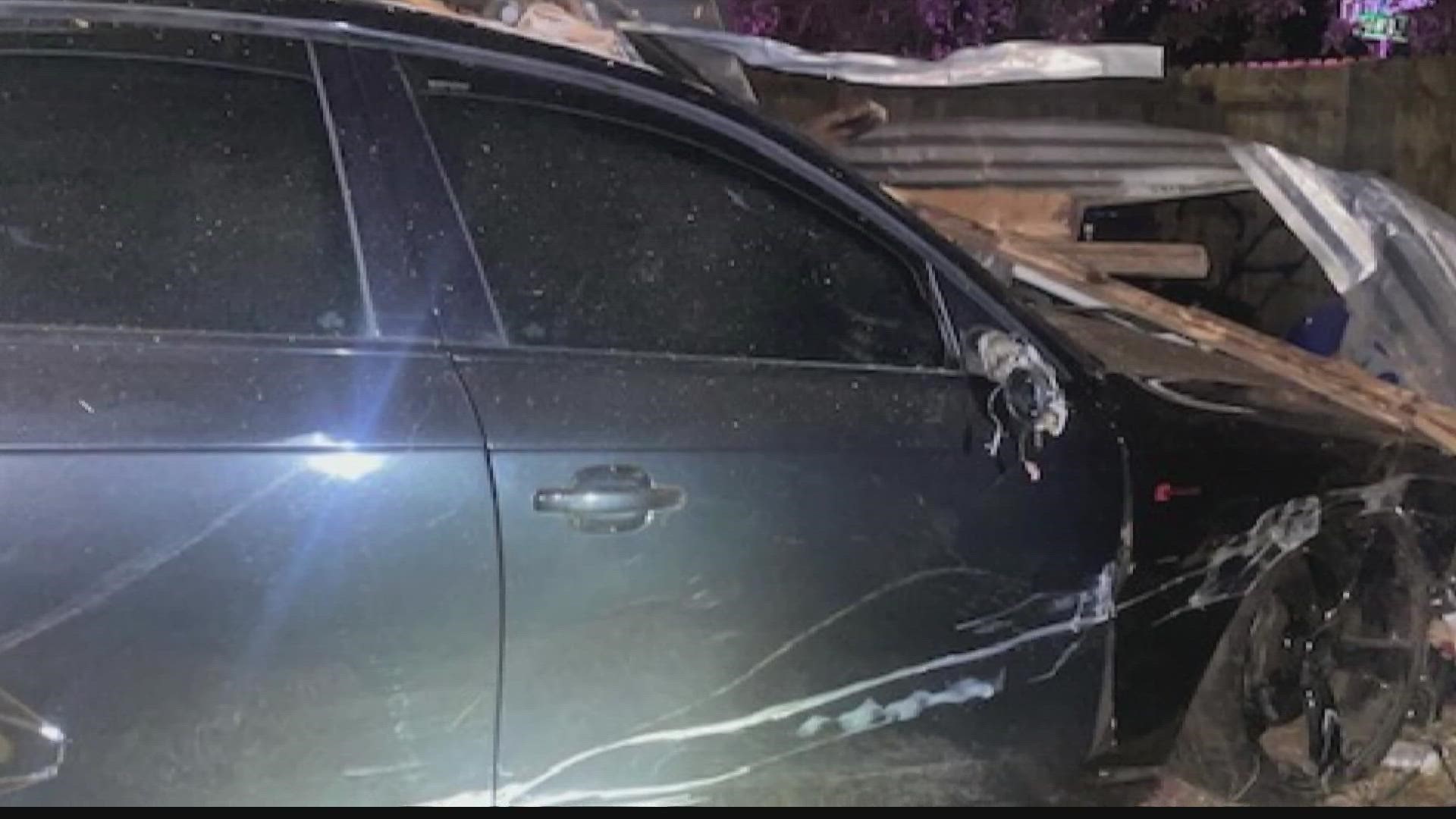JACKSONVILLE, Fla. — Standard operating procedure, or special treatment? It’s a question resurfacing along with new information about the night a Jacksonville firefighter was involved in a late night car crash.
JFRD Capt. Christopher Lewis wrecked his car shortly before midnight. He’d been out with other firefighters at a social gathering, and the 911 calls about the wreck initially came in as reports of a DUI. But nobody ever asked Lewis if he’d been drinking, something that even a local DUI defense attorney finds odd.
“I would think that they would ask the question,” said Susan Cohen, a Jacksonville DUI lawyer with 37 years’ experience. “If for no other reason, out of curiosity."
Kara Pemberthy, Lewis’ former girlfriend and the only person to see him after the crash, told First Coast News he was “annihilated” when she came to pick him up after the accident. “He told me that he was out drinking,” she said in an exclusive interview. “I knew that was Drunk Chris. That wasn’t Sober Chris.”
Lewis stayed the night at Pemberthy's house, and couldn't be located until the next day. He was interviewed about 13 hours after the crash by Jacksonville Sheriff’s Office detectives. They were simultaneously conducting a crash investigation and an Integrity Unit investigation, since Lewis is a city employee and possible criminal charges were involved.
In are recorded interview, Lewis said he’d been out with other firefighters before the accident. “I was at a firefighter function, whatever,” he said.
“Were you with anybody else earlier in the night?” a detective asked. “Yeah, I mean the function with some other firemen.”
The detectives never asked if he’d been drinking at the event. They didn’t ask Pemberthy either, although she says Lewis had given her instruction about what to say if they did: “He told me to say that he wasn't drinking.”
The accident wasn’t a minor fender bender. Lewis drove his 2014 Audi off Joeandy Road, taking out a large section of a resident’s fence and demolishing a backyard carport filled with motorcycles and expensive equipment. Officers on scene estimated damages at $30,000 to $50,000.
He has pleaded not guilty to pending charges of fleeing a car crash, as well as unrelated charges of violating a February restraining order.
Cohen says building a DUI case requires much more proof than just an accident, or even the act of drinking. But she would expect a detective in that situation "to ask if they had been drinking -- if they had reason to think that they had [been]. And a lot of times when it's [someone] leaving the scene of a crash, that's a common thought.”
Lewis has declined requests for comment. In a statement, JSO explained whey detectives could not begin a DUI investigation this way.
“In order to investigate a DUI, there must be a witness who can place the driver behind the wheel at the time of the crash. The witness must be able to keep the driver within their sight until an officer arrives on scene. In this scenario, that was not the case. The detectives were not able to locate and speak to the subject for several hours. Per statute, the detective did not have the requirements necessary to begin a DUI investigation; therefore, he was only investigating the hit and run crash.”
Since officers never saw Lewis driving the car, and could not locate him for many hours, Cohen says that would make it difficult if not impossible to charge someone with DUI.
“If the question is, would they normally ask people if they'd been drinking? They probably would ask them. … Whether it was special treatment? 'Don't ask don't tell?' I can't tell you that, I can just tell you they still would have had to have additional evidence.”
Lewis is currently on limited administrative duty while his two criminal charges play out. He’s due back in court May 18.

